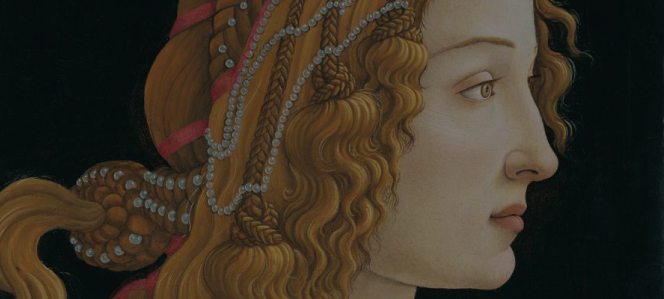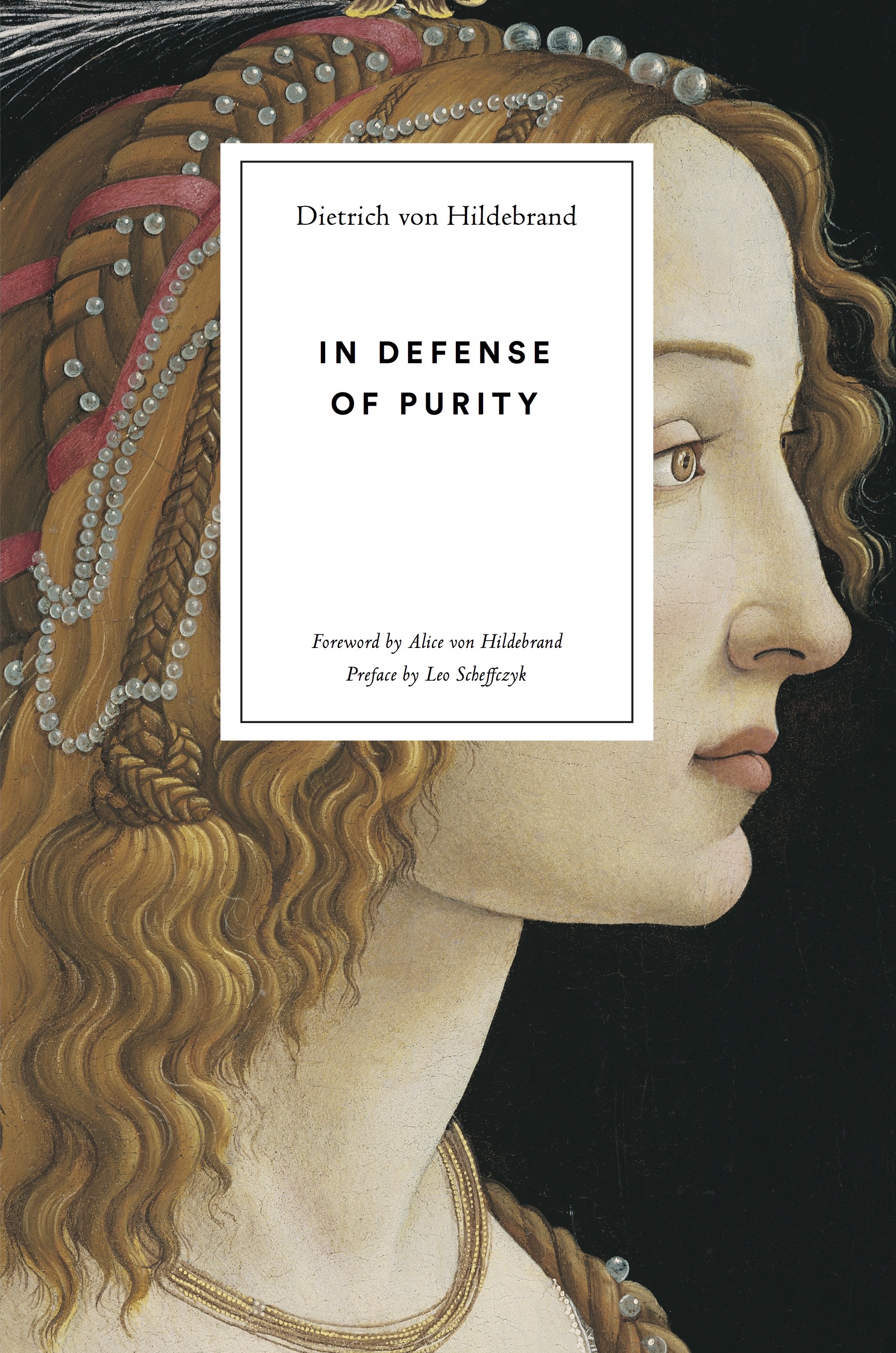Dietrich von Hildebrand is regarded as one of the greatest theologians and philosophers of the twentieth century. Pope Emeritus Benedict XVI once said that, “When the intellectual history of the Catholic Church in the twentieth century is written, the name of Dietrich von Hildebrand will be most prominent among the figures of our time.” From fleeing Germany after having the death sentence placed upon him for his vocal opposition of the Nazi’s, to writing and teaching philosophy for decades, von Hildebrand was hailed as the “twentieth-century Doctor of the Church” by Pope Pius XII.
In an all-new release by Hildebrand Press, one of his books originally published in 1927 has been refurbished and includes a foreword by Dietrich’s wife and fellow well-known philosopher, Alice von Hildebrand. A probing meditation on the nature, value, and beauty of purity, In Defense of Purity is not a book of sexual ethics, nor a “how-to” guide to purity—but for readers with open minds and hearts, the book promises to be transformative.
Today, on the release date of the book, we are excited to share with you an excerpt from the book, the new foreword by Alice von Hilebrand! Be sure to purchase a copy of this phenomenal work that influenced St. John Paul II’s Theology of the Body.
Rarely does a book come along that takes up a perennial theme in such a fresh and unexpected way as to transform all subsequent discussion of the issues. This is one of those books. A concern for purity, especially purity of heart, of course, is as old as many ancient faiths, and common to most. But in this book, Dietrich von Hildebrand inaugurated a new approach to thinking about sex and how the body reveals the human person.
Few thinkers have succeeded so well in showing that the intimate sphere is essentially deep; that it touches the very core of the human person in a way that other bodily desires, like hunger and thirst, do not. The human person is so closely united with his body that they essentially belong together. This uniquely close connection between sex and the person sheds light on why sexual vices are a sort of desecration that befoul the human soul in a way that gluttony and drunkenness do not.
From a young age, and continuing through his formative philosophical studies, Hildebrand was convinced that sex was different from other bodily instincts. He had an innately strong sense for the mysterious domain of sex, and was an attentive student especially of the affective aspects of the human person (see, for example, his other books The Heart and The Nature of Love).
Hildebrand’s intuitions of the depth and mystery of sexuality fully blossomed in him when he entered the Catholic Church in 1914 at the age of twenty-four. He now saw more clearly that the intimate sphere was linked to God, and that in marriage man and woman collaborate with God in the bringing forth of a new human person. But he also saw that purity was opposed, so to speak, from two sides. On the one hand, there was the perennial allure of the flesh and the destruction left in its wake. On the other hand, in reading contemporary Catholic works following his conversion, he was struck by their emphasis on the dangers of impurity and that they seemed to forget that the ugliness and gravity of this sin could only be perceived in the light of the shining virtue of purity.
So this is what he set out to do in In Defense of Purity: to explore purity as a positive reality and only in light of its beauty to describe its contrary. (This is the same approach that Karol Wojtyla would later take to purity in his Love and Responsibility, which was the philosophical ground of his famous Theology of the Body talks). The book explores purity in connection both to married love and to consecrated virginity. To contemporary eyes and ears, this pairing will seem contradictory; in Hildebrand’s treatment, however, we see how purity lies at the root both of a self-giving sexual love and also of the self-gift, soul and body, made by the consecrated virgin.
From its first appearance in 1927, In Defense of Purity was widely recognized as groundbreaking. This was not because its author proposed abandoning perennial Christian teaching on love and sexuality. On the contrary, he contributed by deepening the Christian understanding. He was the first Catholic thinker to distinguish the “procreative” meaning of the conjugal act, which had long been recognized, from the “unitive” meaning of it. This distinction has been crucial for all Christian reflection on marriage since. And, indeed, the Church has incorporated the “procreative” and “unitive” meanings of marriage into her teaching at the Second Vatican Council.
The book is full of other rich insights, many of which my husband would go on to develop in later writings. Particularly significant is his idea that only love – and love as a movement of the heart and not just of the will – has the power to transform sexual passion into an unparalleled expression of love.
Another major contribution is his critique of the idea that purity is just a lack of bodily vitality or the absence of sexual desire. He opens our eyes to the fact that “insensuality” (his term for a weak sensibility for the vital sphere), far from being a virtue (even if, inevitably, it may prevent some people from committing sins of impurity) is in fact something most regrettable: for it cripples those affected by it from a full understanding of the nobility of a total self-donation. It is in giving oneself that one is fully oneself. This also sheds light on virginity, which, likewise, is not a holding back of oneself but a total, complete, heroic giving of oneself to God.
For nearly a century, In Defense of Purity has been pivotal in the lives of countless readers, some discovering the gift and meaning of their sexuality and others finding and feeling confirmed in a religious vocation. One such reader was Dorothy Day, who counted In Defense of Purity among the best books she had read on the Christian life. Its influence is clear in her own reflections on purity:
“Some choose evil because they have not seen the good…Those who suppress sex wrongfully, who hate the flesh, either become neurotic prudes or fall into the opposite extreme of excess. Those unwilling or unable to accept the attitudes of the conventional and puritanical bourgeoisie are easily betrayed by that “poisonous fascination” of which Dr. Von Hildebrand writes.”
No work that I am aware of offers a more fundamental and penetrating treatment of the great and beautiful and neglected virtue of purity. May it once again find a receptive audience.
Alice von Hildebrand
Widow of Dietrich von Hildebrand
Co-Founder, Hildebrand Project

